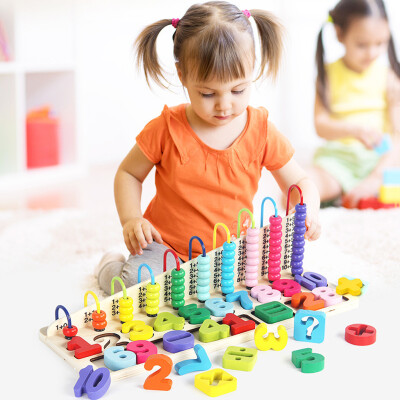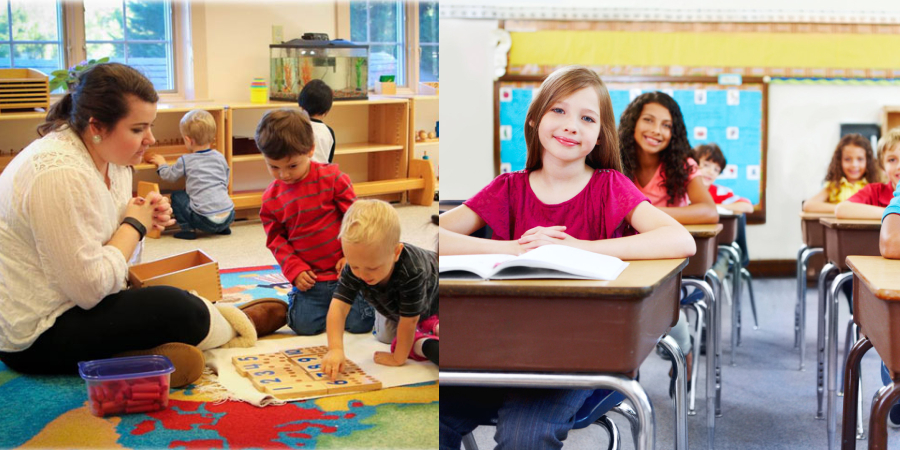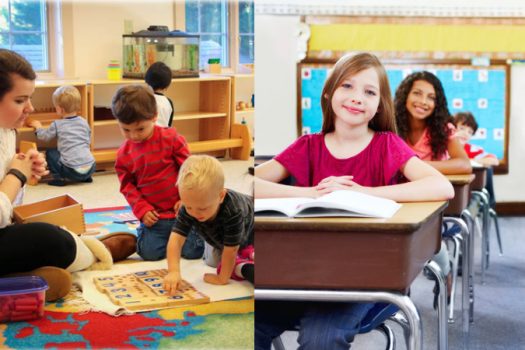Category: Montessori
Montessori Education : 4 Reasons To Choose It

Developed by the Italian Dr, Maria Montessori, the Montessori Method of Education has been around for more than a hundred years. What makes it different from the rest of the education systems? The Montessori system aims to take the learning process beyond the boundaries of books and theoretical learning. Here are 4 reasons why Montessori is considered the best choice:
- Completely Child-centric
The Montessori method believes in the total involvement and interest of the child. That is why Montessori teachers are trained to come up with individualized plans that are tailored to fit the needs and abilities of each child.
- Accountability
 Children are encouraged to ask questions and seek out new knowledge under the watchful guidance of the teachers. In the process, they learn to be more accountable for the knowledge they gain. Self-correction, self-improvement and self- assessment are an intrinsic part of the Montessori method.
Children are encouraged to ask questions and seek out new knowledge under the watchful guidance of the teachers. In the process, they learn to be more accountable for the knowledge they gain. Self-correction, self-improvement and self- assessment are an intrinsic part of the Montessori method.
- Makes Children Knowledgeable
The Montessori method introduces children to hands-on methods of learning from the very beginning. Hence, children are able to grasp concepts easily and retain it in their memory. They are also encouraged to explain the concepts in their own words, thus eliminating the rote learning method.
- Makes children more responsible and capable
The Montessori curriculum is thoughtfully prepared to encourage children to be interactive in class. Children are carefully guided on the process of self-hygiene, to play and interact with fellow students, and actively participate in solo and group activities.
We want to send out a shout to the best SEO marketing firm in Boston Are You On Page 1
DetailsMontessori and Traditional Education : 6 HUGE Differences

In this article we aim to give you a clear idea of the six differences between Montessori education and traditional education:
| Reason | Montessori | Traditional education |
|---|---|---|
| 1.Practical Vs Theoretical | Methods involve active participation of students with hands-on experience. | Passive involvement of students. Promotes rote learning with no practical learning. |
| 2.Duration | Students are given enough time to understand and grasp the concepts. | Time limitations are set by arbitrary schedules. |
| 3.Curriculum | Classes are planned with students’ needs and requirements in mind. Syllabus is more adaptable. | Classes are based on the prescribed syllabus. Classes are more teacher- centric and predetermined. |
| 4.Role of teachers | Teachers are trained to be on a one-on-one basis with children. They will know the individual capacities of each child and teach accordingly. | Irrespective of the capabilities of the students, the same lessons are taught to all at the same time. |
| 5.Love of learning | Montessori aims at making children love school and its environment. Learning is made to be a fun-filled process. | Traditional education is imparted because it is mandatory to go to school. The curriculum focuses on performance in tests and the grades. |
| 6.Validation | Montessori aims at instilling confidence and self-esteem through personal achievements of the child, however small or big. | In traditional education, only the class toppers are recognized and encouraged to do better. |









